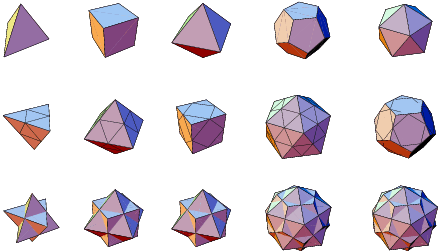How does it relate?
 What is the coefficient of
x
9
9
in the expansion of
(
x
+
1
)
(
x
+
2
)
(
x
+
3
)
⋯
(
x
+
1
0
0
)
?
What is the coefficient of
x
9
9
in the expansion of
(
x
+
1
)
(
x
+
2
)
(
x
+
3
)
⋯
(
x
+
1
0
0
)
?
The challenge is to relate the problem with combinatorics and the given picture and to provide a solution that is based on combinatorics rather than algebra.
The answer is 5050.
This section requires Javascript.
You are seeing this because something didn't load right. We suggest you, (a) try
refreshing the page, (b) enabling javascript if it is disabled on your browser and,
finally, (c)
loading the
non-javascript version of this page
. We're sorry about the hassle.
6 solutions
I used a simple way. For x 9 9 , we need 9 9 x's. And for this, we need x term in all the linears but 1. This will add upto 1 + 2 + 3 + . . . . . . . 1 0 0 , which is 5 0 5 0 . BTW Try finding the coefficient of x 9 8 .
When a polynomial is written in descending order of its coefficients, say:
a n x n + a n − 1 x n − 1 + . . . . . . . a 1 x + a 0
Then ( − a n − 1 / a n ) represents the sum of all roots of polynomial
Here roots are: -1, -2, -3, ....... -100
Coefficient of x 1 0 0 is 1
So (-)Coefficient of x 9 9 = -(1+2+3+......100)
Coefficient of x 9 9 = 100x101/2=5050
in a polynomial when terms are written in ascending order the coefficient of 2nd term is -ve of sum of roots. here it will be = -(-1-2-3...-100)=1+2+3...100=5050
Good idea but I still would like a combinatorial solution. I'll post one soon
The second coefficient of (x+1) is 1 , of (x+1)(x+2) is 3 , of (x+1)(x+2)(x+3) is 6 , of (x+1)(x+2)(x+3)(x+4) is 10 , etc. Have you see? The sequence 1, 3, 6, 10 is part of the second column of the Pascal's triangle ! Thus the solution is the second number of the 101° row, wich is 5050.
1 1 1 1 2 1 1 3 3 1 1 4 6 4 1 1 5 1 0 1 0 5 1 ⋯
We can use Vieta's formulas here and hence find out the answer by adding up all the roots of the equation
BTW Isn't it Vieta's. Nice thinking:)
This question relates to the ordinary generating function . Usually we see constructions such as ( 1 + x ) k which can be interpreted to mean 'choose one or x k times'. We can interpret i + x to mean 'choose i or x ' in a similar way. We can create a series of expressions and expand them, bearing this in mind:
1 2 3 4 5 6 7 8 9 10 11 12 13 14 15 16 17 18 19 20 21 |
|
In each case notice that the term in x with the highest power involves no choices of a number. Then the term with the next highest power must involve single choices of numbers, which must be the sum of the numbers in the terms of unexpanded expression. It's easy here to verify that these sums are indeed the same as the coefficients.
One of the things that the gf represents is this:
You throw all the die at random. In how many ways can you will get a total of 99?
Call the die with one 0 D1, the die with two 0 D2, ...
Note that all of D1, D2, D3, D4, ... have one 1 in each of them. To get 99, we must select 99 of them. Yes?
Say all the dice but D100 land up in 1. That would give the result to be 99.
The D100 die can give a 0 in hundred ways.
Now, let's say that all the dice except D99 give me 1.
The D99 can give me a 0 in 99 ways.
So, there are a total of (1+2+..100) ways in which I can get 99 one's from the hundred dice.
Do you see what the picture means? :P
I was given the problem in the algebraic way. But I still do not know how to do it that way. Would you please tell?